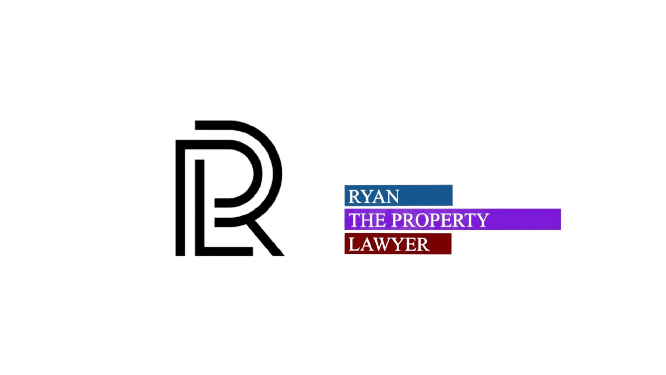Real estate deals are complicated and involve a lot of legal issues, like those about the environment. The value of real estate lawyers guide and the use of a property can be greatly impacted by the presence of hazardous items, contaminated soil or groundwater, and other environmental issues. Throughout property transfers, real estate lawyers are essential in detecting and resolving environmental hazards. This blog article will examine how real estate lawyers guide clients through environmental concerns in real estate transactions.
Table Of Contents:
- Environmental Problems in Real Estate Transactions: Identifying
- Due Diligence for the Environment in Real Estate Transactions
- Real estate that is sustainable and green
- Conclusion
Environmental Problems in Real Estate Transactions: Identifying
During real estate transactions, environmental issues might come up in a number of different ways. Other typical environmental worries include:
- Hazardous Materials: Buildings may contain dangerous substances that put inhabitants’ health at risk, such as asbestos, lead paint, or PCBs (polychlorinated biphenyls).
- Contaminated Soil or Groundwater: Properties with a history of industrial or commercial use may have contaminated soil or groundwater, raising environmental liability concerns.
- Properties located in wetlands or places where endangered species are present may need special permissions or mitigation measures. 3. Properties located in wetlands or places where endangered species are present may need special permissions or mitigation measures.
- Compliance with Environmental Laws: Properties are required to abide by a number of environmental rules and ordinances at the federal, state, and local levels.
Throughout property purchases, real estate lawyers are essential in spotting potential environmental problems. To make sure the property conforms with environmental laws and regulations, they examine environmental reports and perform due diligence. If environmental issues are found, the real estate lawyer will advise the client on the best course of action.
Environmental Risk Reduction in Real Estate Transactions
Real estate lawyers can assist clients in minimizing the risks involved with environmental hazards that are discovered during a property purchase. Real estate lawyers can assist clients in navigating environmental challenges in real estate transactions in the following ways:
- Drafting Contract Terms: Real estate lawyers can negotiate clauses in contracts that address environmental concerns, such as forcing the seller to clean up any contamination or guaranteeing that the property is free of dangerous substances.
- Designing Contingency Clauses: Real estate lawyers are able to create contingency clauses that give the buyer the option to cancel the deal if environmental issues are found during the due diligence process.
- Helping with Remediation: Real estate lawyers can assist their clients with the remediation process, including liaising with contractors and regulatory bodies and securing required permits.
- Liability Advice Real estate lawyers can help clients reduce their exposure to liabilities by advising them on potential environmental liability issues.
- Handling Disputes: Real estate lawyers can help clients settle environmental conflicts through litigation and other forms of alternative dispute resolution.
When it comes to negotiating environmental difficulties during real estate transactions, real estate lawyers can be a great resource for their clients. Real estate lawyers can support clients in safeguarding their interests and reducing their exposure to liability by identifying potential environmental issues, negotiating contract conditions, and helping with cleanup.
Due Diligence for the Environment in Real Estate Transactions
All real estate deals must include environmental due diligence. To find any potential environmental issues, a thorough examination of the property’s historical and present environmental circumstances is required. Environmental due diligence is critically important, and real estate lawyers play a key role in it. All real estate deals must include environmental due diligence. To find any potential environmental issues, a thorough examination of the property’s historical and present environmental circumstances is required. Environmental due diligence is critically important, and real estate lawyers play a key role in it.
Typically, environmental due diligence entails the following:
- Phase I Environmental Site Assessment: To identify potential environmental issues, a preliminary analysis of the property’s history, prior land use, and current circumstances is conducted.
Phase II environmental site evaluation may be carried out if Phase I finds any potential environmental issues. This assessment involves soil and groundwater tests to assess the level of pollution.
- Other Environmental Reports: Other environmental reports, such as wetland delineation, endangered species surveys, or asbestos assessments, may be required depending on the property’s location and prior use.
In order to identify any potential environmental dangers connected with the property, real estate lawyers study environmental assessments and work with clients to evaluate the due diligence findings. A real estate lawyer can help the client come up with plans to mitigate any hazards if environmental concerns are found.
The real estate lawyer can advise the client on the best course of action, for instance, conducting a Phase II assessment to see if the tanks are leaking and negotiating with the seller to clean up any contamination if a Phase I environmental site assessment reveals the presence of underground storage tanks on the property.
Environmental laws and regulations’ impact on real estate deals
Many federal, state, and municipal environmental rules and regulations must be complied with when conducting real estate transactions. By limiting the use of a property, requiring licenses, and subjecting buyers and sellers to liability for environmental damage, environmental laws and regulations can have a considerable impact on real estate transactions.
To assist clients in navigating environmental difficulties in real estate transactions, real estate lawyers need to have a thorough awareness of environmental laws and regulations. The following are some of the most important environmental laws and guidelines that real estate lawyers should be aware of:
- The Comprehensive Environmental Response, Compensation, and Liability Act (CERCLA), often known as Superfund, holds potentially responsible parties, such as present and previous owners and operators of the land, accountable for the cleanup of hazardous waste sites.
- The Resource Conservation and Recovery Act (RCRA): This law governs the production, handling, and disposal of hazardous waste.
- The Clean Water Act (CWA) prohibits the release of contaminants into wetlands and navigable waters.
- National Environmental Policy Act (NEPA): NEPA mandates that federal agencies assess how their actions may affect the environment and identify options to reduce unfavorable effects.
- The Endangered Species Act (ESA), which requires federal agencies to consult with the National Marine Fisheries Service or the U.S. Fish and Wildlife Service before taking any actions that may have an impact on a listed species, protects endangered and threatened species as well as their habitats.
Real estate lawyers are required to make sure that their clients abide by these rules and laws as well as reduce any potential environmental risks connected to the property.
Real estate that is sustainable and green
Green real estate and sustainable construction have gained popularity in recent years. While sustainable development focuses on building communities that strike a balance between economic, social, and environmental factors, green real estate refers to properties that are conceived, built, and operated in an environmentally sustainable manner. Green real estate and sustainable construction have gained popularity in recent years. While sustainable development focuses on building communities that strike a balance between economic, social, and environmental factors, green real estate refers to properties that are conceived, built, and operated in an environmentally sustainable manner.
Green real estate and sustainable development can be made possible with the help of real estate lawyers. They can offer clients advice regarding zoning rules, tax credits, subsidies, and other environmental regulations and incentives that support sustainable development and green building techniques.
Green leases, which include sustainability practices like energy-efficient building systems, water conservation measures, and waste reduction methods, can also be created and negotiated with the help of real estate lawyers. Green leases can be good for both landlords and tenants because they can lead to lower operating costs, happier tenants, and better environmental performance.
Conclusion
Real estate lawyers are essential in identifying and resolving environmental issues since they can have a substantial influence on real estate transactions. Real estate lawyers can assist clients in navigating environmental concerns and reducing their exposure to liability by conducting environmental due diligence, negotiating contract conditions, and giving clients advice on compliance with environmental laws and regulations.
By advising clients on environmental laws and incentives, creating and negotiating green leases, and advocating sustainable construction methods, real estate lawyers can also promote green real estate and sustainable development.
In conclusion, in order to effectively advise clients in real estate transactions, real estate lawyers need to have a thorough awareness of environmental challenges and legislation. I can encourage sustainable and ethical land use practices that benefit the environment and the economy by integrating environmental considerations into real estate transactions.
Author Profile

Latest Blog
 Uncategorised22 December 2023What Constitutes a Legal Partnership in Ontario?
Uncategorised22 December 2023What Constitutes a Legal Partnership in Ontario? Uncategorised22 December 2023Characteristics of a Corporation in Ontario
Uncategorised22 December 2023Characteristics of a Corporation in Ontario Uncategorised22 December 2023Intentions Matter When Co-Owning Property
Uncategorised22 December 2023Intentions Matter When Co-Owning Property Uncategorised22 December 2023Consequences of Operating an Ontario Partnership
Uncategorised22 December 2023Consequences of Operating an Ontario Partnership




